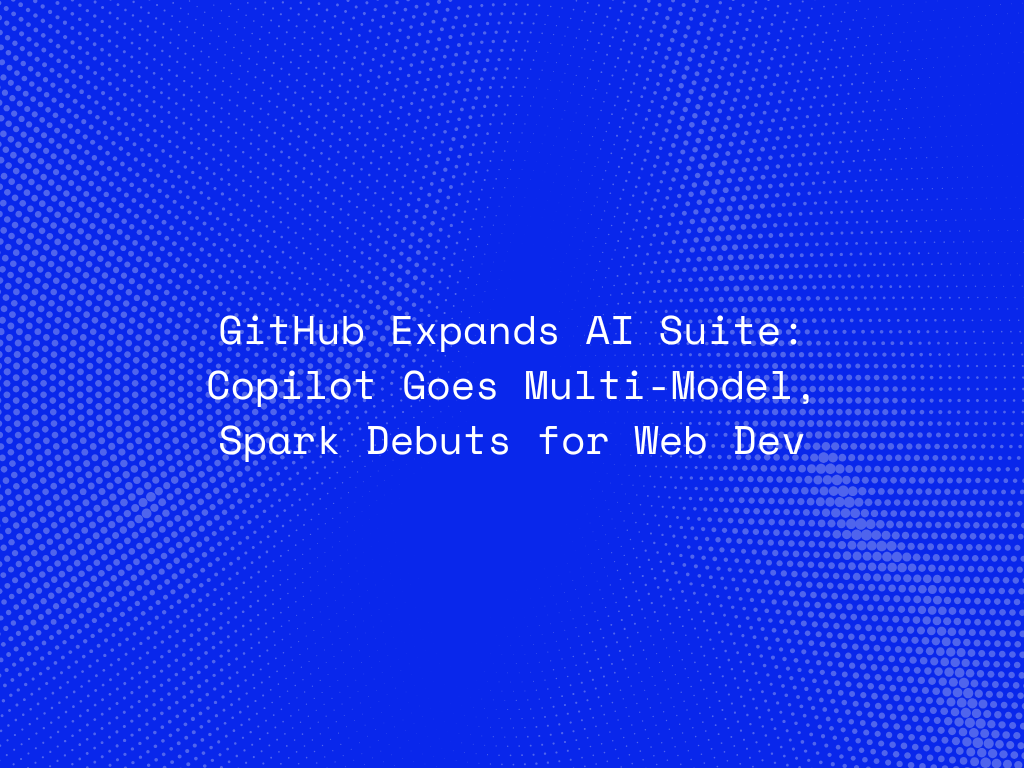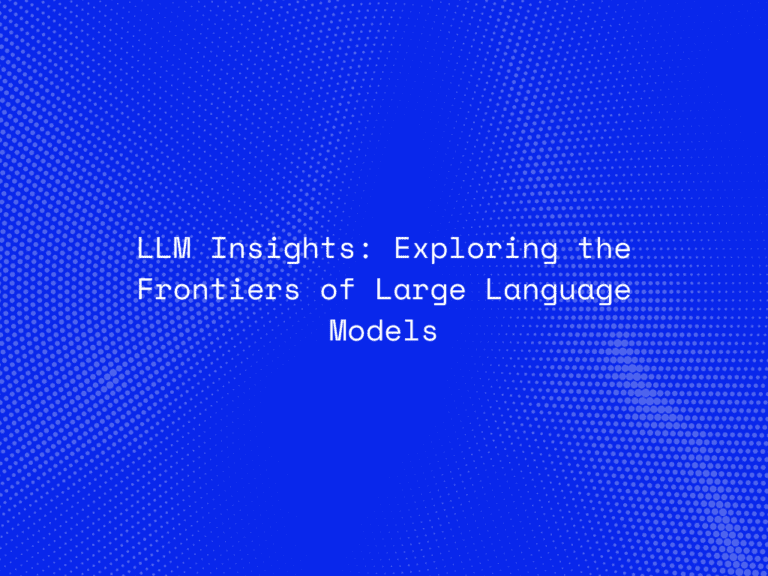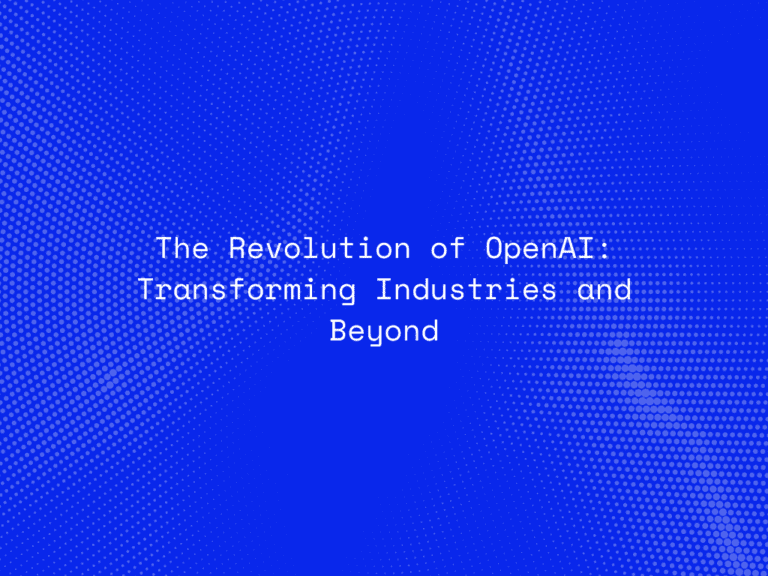In a rapidly evolving software development landscape, GitHub continues to lead innovation by empowering developers with advanced tools. Its latest updates—multi-model capabilities for GitHub Copilot and the introduction of Spark, an AI-driven assistant tailored for web developers—redefine how teams write, debug, and collaborate on code. These innovations aim to reduce inefficiencies, bridge communication gaps, and elevate developer productivity to new heights. This blog dives deep into these groundbreaking features and their potential to reshape software engineering.
What’s New with GitHub Copilot?
GitHub Copilot, already a game-changer in AI-assisted coding, now incorporates multi-model functionality. This enhancement unlocks new capabilities that cater to diverse development needs:
- Task-Specific AI Models:
- Developers can now select from various AI models optimized for specific tasks, such as generating documentation, writing unit tests, or suggesting efficient algorithms.
- For example, one model might excel at generating clean, modular Python code, while another specializes in handling TypeScript for frontend frameworks.
- Improved Context Awareness:
- The multi-model feature enables Copilot to provide smarter suggestions by analyzing project-wide contexts.
- Whether managing a monolithic application or a microservices-based architecture, Copilot adapts to coding patterns, improving accuracy and relevance.
- Customizable Code Style Adherence:
- Developers can configure Copilot to align suggestions with team-specific coding standards or project requirements, ensuring consistency across large teams.
- Advanced Debugging Support:
- Multi-model Copilot not only writes code but also suggests fixes for errors, identifies potential bugs, and enhances the debugging process with tailored solutions.
Introducing Spark: AI for the Modern Web Developer
Web development often involves repetitive tasks like converting designs to code, optimizing performance, and debugging. GitHub’s Spark addresses these challenges by offering a feature-rich, AI-powered assistant specifically for web developers:
- Design-to-Code Automation:
- Spark translates design files from tools like Figma or Adobe XD directly into semantic, production-ready HTML, CSS, and JavaScript.
- This feature drastically reduces the time needed to hand-code UI elements and improves consistency between design and implementation.
- AI-Driven Debugging:
- Spark identifies errors in web applications and suggests fixes in real-time, whether it’s a misaligned div or a slow-loading script.
- Performance Optimization:
- Spark ensures that web applications adhere to best practices for speed and accessibility, providing insights on image compression, lazy loading, and asset bundling.
- Seamless Collaboration with Designers:
- By automating front-end code generation, Spark bridges the gap between design teams and developers, ensuring smoother workflows.
- Framework-Specific Support:
- Tailored for popular frameworks like React, Angular, and Vue, Spark offers framework-specific code snippets, reducing boilerplate coding efforts.

How These Features Empower Developers
The combination of multi-model Copilot and Spark offers several advantages:
- Enhanced Productivity:
- Automating repetitive coding tasks allows developers to dedicate more time to creative problem-solving and strategic planning.
- Accelerated Development:
- With AI-generated suggestions and automated debugging, teams can deliver projects faster while maintaining quality.
- Improved Code Quality:
- Tailored AI recommendations lead to cleaner, more efficient code that adheres to industry and team standards.
- Inclusivity for Beginners:
- Novice developers benefit from the AI’s guidance, learning coding patterns, debugging techniques, and best practices in real-time.
- Cross-Team Collaboration:
- Tools like Spark improve communication and workflow between designers and developers, ensuring smoother transitions from ideation to execution.
Challenges to Address
While these advancements are exciting, there are challenges to consider:
- Learning Curve:
- Developers may need time to understand and leverage multi-model capabilities effectively.
- Ethical Concerns:
- Ensuring AI-generated code does not replicate proprietary or insecure patterns is critical for maintaining ethical standards.
- Dependency Risks:
- Over-reliance on AI tools could potentially limit manual coding proficiency and problem-solving skills.
- Data Privacy:
- As these tools process sensitive codebases, ensuring data security and confidentiality is paramount.
The Future of AI in Software Development
GitHub’s expansion of its AI suite signals broader trends in software development:
- End-to-End AI Assistance:
- Future updates might integrate AI deeper into the software lifecycle, from requirement gathering and architecture design to deployment and maintenance.
- Democratization of Development:
- By simplifying coding for beginners and enhancing workflows for experts, tools like Copilot and Spark make software development more accessible.
- Integration with DevOps Pipelines:
- Expect tighter integration of these AI tools with CI/CD pipelines, ensuring automated testing, deployment, and monitoring.
- Innovation in Real-Time Collaboration:
- AI could facilitate live coding sessions where multiple developers work simultaneously with AI suggestions, transforming collaborative programming.
Conclusion:
GitHub’s latest updates to its AI suite—multi-model Copilot and Spark—underscore its commitment to revolutionizing software development. These tools not only simplify coding but also enhance collaboration, scalability, and innovation. As AI tools become integral to the developer toolkit, they promise a future where creativity and efficiency thrive hand in hand, pushing the boundaries of what’s possible in software engineering.




